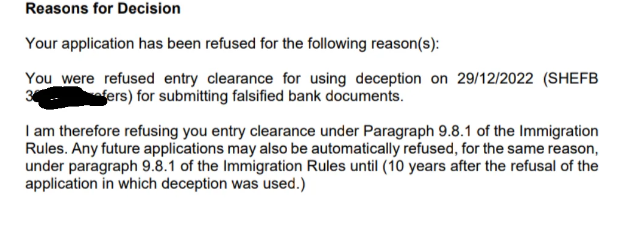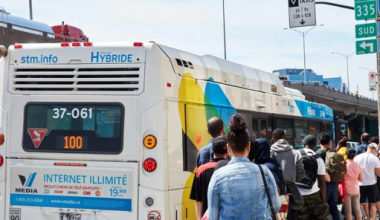As I stepped into the embassy, my heart raced with anticipation.
The weight of my passport in my hand felt heavier than usual, laden with the hopes and dreams of international travel. But a nagging question persisted in my mind: did they know about my previous visa refusal in another country?
This experience led me on a journey to uncover the intricate web of information sharing between embassies and the implications for travelers like you and me.
The Global Network of Visa Information
Have you ever wondered if embassies have a secret club where they share juicy details about visa applicants?
Well, it’s not quite as clandestine as that, but there is indeed a system in place. Embassies and consulates around the world are part of a complex network that often shares information about visa applicants and their history.
The Five Country Conference (FCC) Agreement One of the most significant information-sharing arrangements is the Five Country Conference (FCC) Agreement. This pact involves the United States, United Kingdom, Canada, Australia, and New Zealand. Under this agreement, these countries share biometric data and other relevant information about visa applicants.
For example, if you applied for a visa to the UK and were refused, and later decided to try your luck with a US visa, there’s a good chance the US embassy would be aware of your previous refusal.
It’s like having a permanent record that follows you across borders – a thought that might make you squirm in your seat.
Schengen Information System (SIS) In Europe, the Schengen Information System (SIS) takes center stage.
This database is shared among Schengen countries and contains information about individuals who have been denied entry or are considered a security risk. If you’ve been refused a Schengen visa by one country, others in the zone will likely know about it.
I once met a fellow traveler who had been denied entry to France and thought he could simply try his luck with Germany instead.
Needless to say, he was in for a rude awakening when the German embassy quickly identified his previous refusal.
The Ripple Effect of a Visa Refusal
Now that we’ve established that embassies often do know about visa refusals in other countries, let’s explore the impact this can have on your future travel plans.
Increased Scrutiny When an embassy sees a previous visa refusal on your record, it’s like a red flag waving in their face. They’re likely to scrutinize your application more closely, looking for any inconsistencies or reasons to doubt your intentions.
I remember the nervous sweat that broke out on my forehead when a consular officer asked me point-blank about a visa refusal from years ago. It felt like being under a microscope, with every detail of my application subject to intense examination.
Potential for Automatic Refusal In some cases, a previous visa refusal can lead to an automatic rejection of your new application. This is particularly true if the reasons for the initial refusal haven’t been addressed or if there’s suspicion of fraud or misrepresentation.
However, it’s important to note that a previous refusal doesn’t always spell doom for your travel dreams. Embassies understand that circumstances change, and they do consider each application on its own merits.
The Need for Full Disclosure
Given the interconnected nature of embassy information systems, honesty is truly the best policy when it comes to visa applications.
Transparency Builds Trust When you’re upfront about previous visa refusals, you’re demonstrating integrity. Embassies appreciate applicants who are forthcoming about their history, as it shows a willingness to comply with immigration rules.
I learned this lesson the hard way when I initially tried to hide a previous refusal. The moment of truth came during my interview, and I can tell you, coming clean after being caught is far more uncomfortable than being honest from the start.
Addressing Past Issues By disclosing previous refusals, you give yourself the opportunity to explain how your circumstances have changed or how you’ve addressed the reasons for the initial rejection. This proactive approach can work in your favor.
For instance, if a visa was refused due to insufficient funds, you can now provide evidence of a more stable financial situation. It’s like turning a potential weakness into a strength, showing personal growth and improved eligibility.
Navigating the Visa Application Process
Armed with the knowledge that embassies may be privy to your visa history, how can you navigate the application process more effectively?
Do Your Homework Before applying, research the specific requirements for the country you’re interested in visiting. Each nation has its own criteria, and understanding these can significantly improve your chances of success.
I once spent hours poring over embassy websites and visa forums, determined to leave no stone unturned in my preparation. This diligence paid off when I was able to anticipate and address potential concerns before they were even raised.
Seek Professional Advice If you have a complex visa history or are unsure about how to proceed, consider consulting with an immigration lawyer or a reputable visa consultant. Their expertise can be invaluable in presenting your case in the best possible light.
Be Prepared to Explain If you have previous visa refusals, be ready to explain the circumstances clearly and concisely. Prepare documentation that supports your explanation and demonstrates how your situation has improved since the refusal.
During one particularly intense visa interview, I was grateful for the folder of supporting documents I had meticulously prepared. Being able to promptly provide evidence to back up my statements made a noticeable difference in the officer’s demeanor.
The Future of Visa Information Sharing
As we look to the future, it’s clear that the trend towards greater information sharing between embassies is likely to continue and evolve.
Technological Advancements With the rapid pace of technological development, we can expect more sophisticated systems for tracking and sharing visa information. Biometric data, artificial intelligence, and blockchain technology may all play a role in creating an even more interconnected global visa network.
Imagine a world where your entire travel history is instantly accessible to any embassy at the touch of a button. It’s a future that’s both exciting and slightly unnerving for frequent travelers like us.
Privacy Concerns As information sharing becomes more prevalent, questions about data privacy and protection will undoubtedly come to the forefront. How much information should be shared, and how can we ensure it’s used responsibly?
These are questions we’ll need to grapple with as global citizens and advocates for fair and transparent travel policies.
Conclusion
As I reflect on my journey through the complex world of visa applications and embassy information sharing, I’m struck by the delicate balance between national security and individual privacy. The knowledge that embassies often do know about visa refusals in other countries can be daunting, but it also underscores the importance of honesty and preparedness in our travels.
For you, the aspiring global explorer, this information is both a caution and an opportunity. It’s a reminder to approach visa applications with thoroughness and integrity, and to view each application as a chance to present your best self to the world.
As we continue to navigate an increasingly interconnected global landscape, may we do so with wisdom, respect for international processes, and an unwavering spirit of adventure. After all, isn’t the joy of discovering new horizons worth the occasional bureaucratic hurdle?






